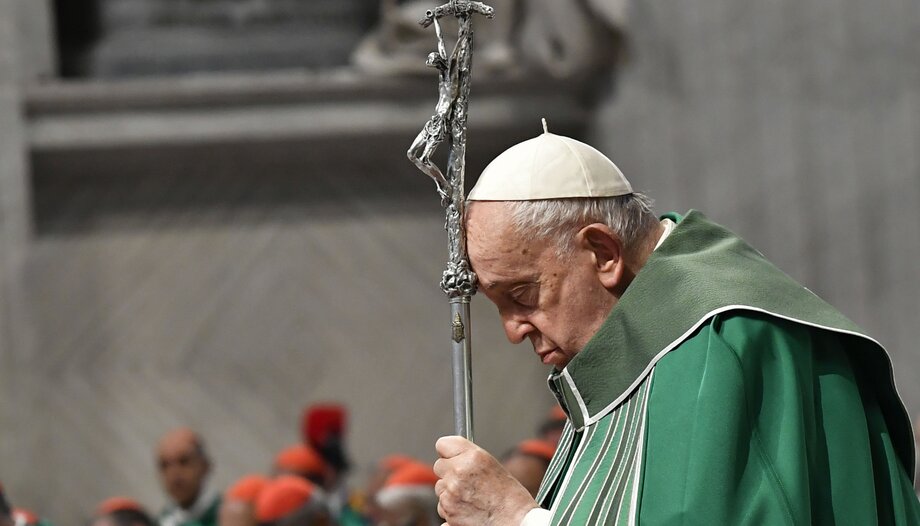Sala Stampa announced on November 1 in the morning that the Pontifical Academy of Theology has new statutes. Pope Francis has signed the motu proprio "Ad Theologiam promovendam", approving the modified regime of this scientific society.
The new statutes aim to ensure that the academy better fulfills its purpose. The Holy Father explains that "promoting theology in the future cannot be limited to abstractly reproposing formulas and schemes of the past." Theology is "called to interpret prophetically the present and to discern new paths for the future." To do this, "it will have to face the profound cultural transformations" that society is undergoing.
Renewing theology
In the light of the new era, Pope Francis wants to promote "the mission that our time imposes on theology". The Pontiff considers that "to a Church that is synodalThe key to achieving this is an "epistemological and methodological rethinking" of theology. The key to achieving this is an "epistemological and methodological rethinking" of theology.
In the motu proprio, the Pope points out that theological reflection "is called to a turning point, to a paradigm shift". This change will foster a "fundamentally contextual theology, capable of reading and interpreting the Gospel in the conditions in which men and women live daily". This rethinking "cannot but take place in a culture of dialogue and encounter between different traditions and knowledge, between different Christian confessions and different religions, openly confronting all, believers and non-believers".
Pope Francis warns that theology cannot be self-referential. Theology must "see itself as part of a network of relationships, first of all with other disciplines and other knowledge." In other words, it has to adopt the approach of transdisciplinarity, that is, "the pooling and fermentation of all knowledge in the space of Light and Life offered by the Wisdom that flows from God's Revelation" (Apostolic Constitution "Veritatis gaudium"). This perspective has other consequences, since "dialogue with other knowledge clearly presupposes dialogue within the ecclesial community and an awareness of the essential synodal and communitarian dimension of doing theology" (Apostolic Constitution "Veritatis gaudium").
The new statutes of the academy envisage the collaboration of key interlocutors: scholars from different Christian denominations or from other religions. Together with them, the aim is to "identify and open areas and spaces for dialogue that favor inter- and transdisciplinary dialogue".
Theology: truth and charity
In addition to dialogue, Francis believes that theology must be steeped in charity. He affirms that "it is impossible to know the truth without practicing charity". For this reason, theology must show itself to be "a true critical knowledge as sapiential knowledge, not abstract and ideological, but spiritual, elaborated on its knees, full of adoration and prayer". Theological reflection must be directed "to the open wounds of humanity and creation and within the folds of human history, to which it prophesies the hope of a unique fulfillment".
The Pope urges that theology be developed with an "inductive method". He invites it to "start from the different contexts and concrete situations in which people find themselves, allowing itself to be seriously challenged by reality, so as to become a discernment of the 'signs of the times'". It also encourages that theological reflection be imbued with the "common sense of the people.
Practically at the end of the motu proprio, Francis details that "theology is at the service of the Church's evangelization and the transmission of the faith". Thanks to it, faith becomes culture, that is, "the wise 'ethos' of the people of God, a proposal of human and humanizing beauty for all."
Community reflection
Considering the renewed mission of theology, "the Pontifical Academy of Theology is called to develop, in constant attention to the scientific nature of theological reflection, a transdisciplinary dialogue with other fields of knowledge". It is also necessary to open a space for the contributions that can be made in the conversation between believers and non-believers, between "men and women of different Christian confessions and of different religions".
The Holy Father invites, therefore, to create "an academic community of shared faith and study, which weaves a network of relationships with other formative, educational and cultural institutions and which knows how to penetrate, with originality and a spirit of imagination, into the existential places of the elaboration of knowledge, professions and Christian communities".











